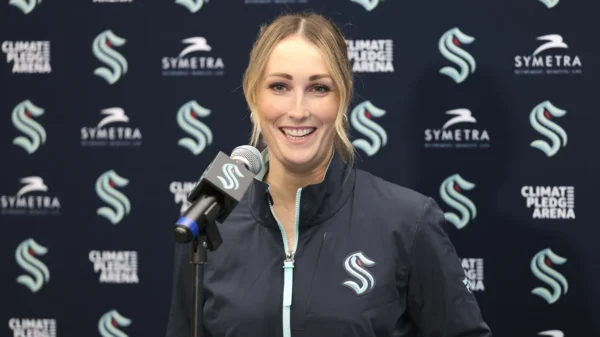Current Spending Trends in the U.S.
Recent data highlights a notable decline in American spending habits, signaling potential economic concerns. Bank of America CEO Brian Moynihan has pointed out that consumer payments have grown by a mere 3.5% over the past year, a stark contrast to the 10% growth observed in the previous year. This deceleration in consumer spending is evident across various metrics, including credit card usage, checks, and ATM withdrawals.
Credit card usage, a key indicator of consumer confidence and spending power, has seen a marked reduction. The growth rate of credit card transactions has slowed significantly, reflecting a more cautious approach to spending among consumers. Similarly, the frequency of checks being used for transactions has diminished, further corroborating the trend of restrained consumer expenditure. ATM withdrawals, another metric closely watched by economists, have also experienced a decline, suggesting that people are opting to hold onto their cash rather than spend it.
Interestingly, this trend is not confined to any particular income group. Even high-income Americans are exhibiting more frugal spending habits, as evidenced by their increased patronage of discount retailers. This shift indicates that economic uncertainties are prompting a broader swath of the population to reassess their spending priorities. The growing popularity of discount retailers among affluent consumers underscores a pervasive sense of financial caution that transcends traditional economic boundaries.
These spending trends raise critical questions about the overall health of the U.S. economy. Reduced consumer spending can lead to slower economic growth, as consumer expenditure is a significant driver of economic activity. The current spending behavior suggests that economic sentiment may be weakening, potentially leading to a more prolonged period of economic stagnation. As Americans continue to tighten their belts, the broader implications for businesses, employment, and economic stability remain a critical area of focus for policymakers and economists alike.
Consumer spending is a cornerstone of economic vitality, accounting for a significant portion of the Gross Domestic Product (GDP) in the United States. When consumer spending declines, as observed recently, it triggers a cascade of economic repercussions. Economists express concern over this trend because reduced consumer expenditure can lead to slower economic growth, and in severe cases, a recession.
The retail sector often feels the immediate impact of declining consumer spending. With fewer dollars circulating in the economy, retailers face reduced sales, leading to lower revenues and potential layoffs. This contraction can ripple through supply chains, affecting manufacturers and wholesalers who rely on steady orders from retailers to maintain their operations. For instance, a slowdown in consumer electronics sales can negatively impact not just retail stores but also the technology manufacturing sector, from component suppliers to assembly plants.
Moreover, consumer confidence plays a pivotal role in spending habits. Psychological factors such as inflation concerns and job market uncertainties can significantly influence consumers’ willingness to spend. When inflation erodes purchasing power, individuals may prioritize saving over spending, further dampening economic activity. Similarly, job market anxieties can lead to precautionary saving, where consumers hold off on non-essential purchases due to fears of future unemployment or income instability.
Broader economic anxieties, such as geopolitical tensions or policy changes, can also exacerbate this decline. When consumers perceive the economy as unstable, they are less likely to engage in discretionary spending, opting instead to build financial buffers against potential economic downturns. This behavior, while rational on an individual level, can collectively lead to reduced aggregate demand, slowing economic growth.
Experts suggest several measures to counteract declining consumer spending and stabilize the economy. Fiscal policies such as tax cuts or stimulus checks can provide immediate relief and boost disposable income, encouraging spending. Monetary policy adjustments, including interest rate cuts, can lower borrowing costs, making it more attractive for consumers to finance large purchases. Additionally, efforts to enhance job security and stabilize the labor market can restore consumer confidence, fostering a more conducive environment for spending.




































